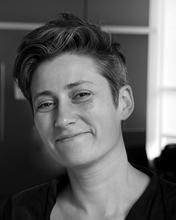“Redistricting and Competitiveness,” Moon Duchin, Tufts University

QUANTITATIVE RESEARCH METHODS WORKSHOP
Abstract: What is a competitive election? Even more difficult: what is a competitive districting plan? Redistricting reform measures are being proposed at an unprecedented rate as we turn the corner to 2021, and reformers are frequently attracted to “competitiveness” and its cousin, “responsiveness,” as districting criteria. I’ll survey some Markov chain techniques that are emerging as promising approaches to redistricting analysis, and I’ll turn those techniques to the challenge of making sense of competitiveness rules, using actual examples from Arizona, Missouri, New Jersey, and more. I hope to explain some of the combinatorial and algorithmic guts of the methodology as well. No particular background in math or political science will be assumed.
Moon Duchin is a mathematician at Tufts University and a senior fellow in the Tisch College of Civic Life. She is the PI of the MGGG Redistricting Lab (mggg.org), an interdisciplinary research effort drawing on geometry, geography, algorithms, and data science. The Lab works to apply topology, combinatorics, and dynamics to the study of electoral districts and voting rights.
This workshop series is being sponsored by the ISPS Center for the Study of American Politics and The Whitney and Betty MacMillan Center for International and Area Studies at Yale with support from the Edward J. and Dorothy Clarke Kempf Fund.